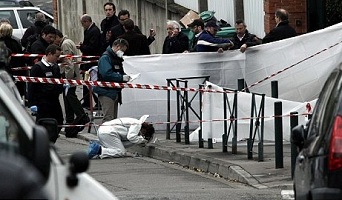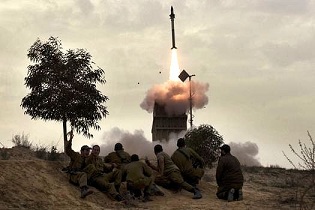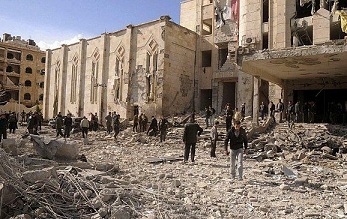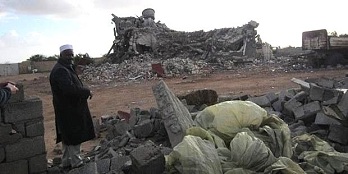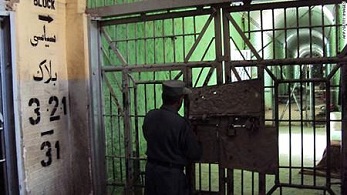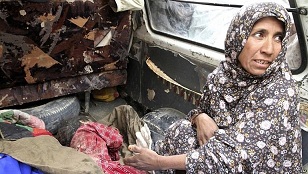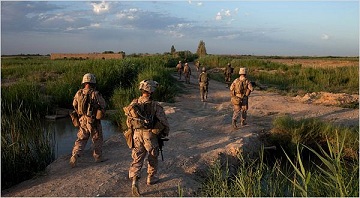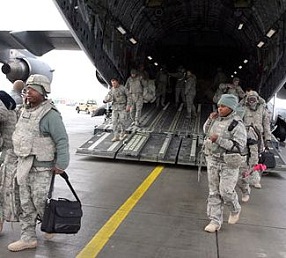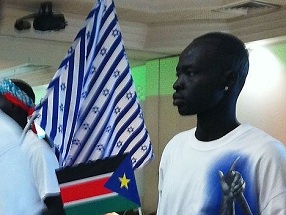New York Times Promotes War on Syria and Iran
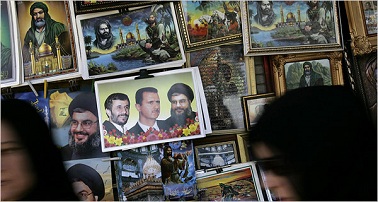
ICONS Syria and Iran feel emboldened; their leaders (left and center)
appeared with Hezbollah’s on a poster for sale in Damascus last June.
(Photo: Shawn Baldwin for The New York Times)
As America's leading broadsheet, what it reports matters, especially on war and peace. Instead of accuracy, full disclosure, and supporting right over wrong, The Times consistently cheerleads US wars and prospective ones. Enemies are vilified. Rule of law principles don't matter, nor do decades of crimes of war and against humanity, as well as millions of lost lives in the last decade alone.
In June 1950, The Times called Truman's war on North Korea the right decision, even though Pyongyang responded defensively to repeated South Korean cross-border incursions.
IF Stone's "Hidden History of the Korean War" explained what scoundrel journalism suppressed, including NYT feature stories. Stone called it international aggression. So did Monthly Review co-founders Leo Huberman and Paul Sweezy, saying:
"....we have come to the conclusion that (South Korean president) Syngman Rhee deliberately provoked the North Koreans in the hope that they would retaliate by crossing the parallel in force. The northerners fell neatly into the trap."
Truman instigated what happened and took full advantage. Stone explained, saying:
"we said we were going to Korea to go back to the status quo before the war but when the American armies reached the 38th parallel they didn't stop, they kept going, so there must be something else. We must have another agenda here and what might that agenda be?"
He learned it reflected America's imperial ambitions. Vietnam followed. He opposed both wars. So did others.


























